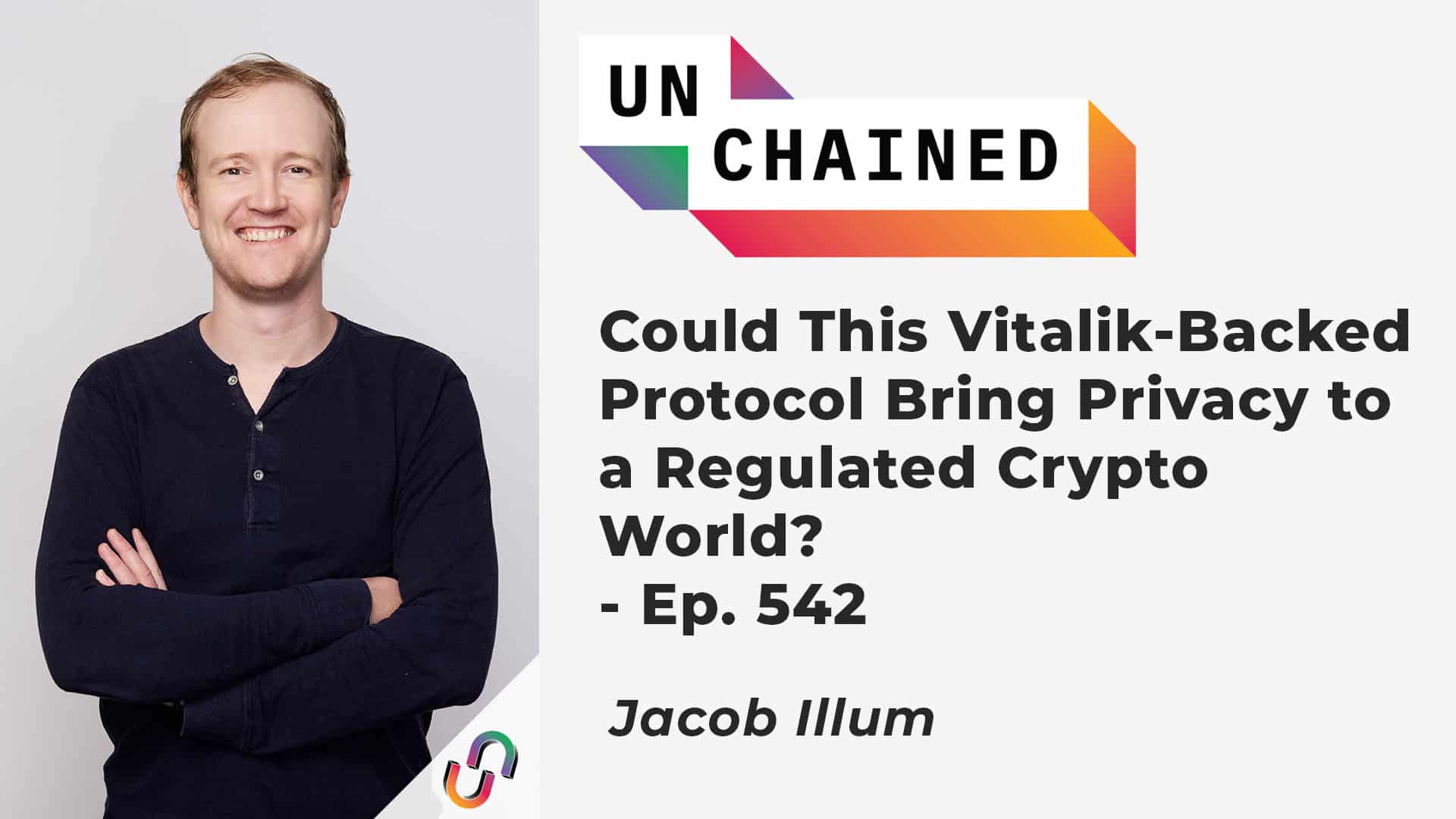Earlier this week, Ethereum co-founder Vitalik Buterin and four co-authors published a paper describing a smart contract protocol called privacy pools that would enable crypto users to associate their funds with those being used for legitimate purposes versus those being used in criminal activity such as hacks or money laundering. The protocol addresses one of the main shortcomings of coin mixer Tornado Cash, which has been sanctioned by the U.S. government.
Chainalysis chief scientist Jacob Illum, one of those co-authors, discusses the impetus for the paper, the technology behind privacy pools and how they would work in practice, who would provide some of the necessary organization to operate the pools, and some of the early criticisms of the paper.
Listen to the episode on Apple Podcasts, Spotify, Overcast, Podcast Addict, Pocket Casts, Stitcher, Castbox, Google Podcasts, Amazon Music, or on your favorite podcast platform.
Show highlights:
- what the current state of crypto privacy is and what the motivation was to write this paper
- what privacy pools are and how they work
- how zero-knowledge proofs are the key technology behind privacy pools
- what the role of association set providers is in making this new technology work
- what would happen in different potential scenarios, such as a “bad address” being discovered after a transaction has been made
- how the protocol would protect the privacy and identity of the users
- how law enforcement, credit score agencies and other organizations could have “special viewing privileges” of transactions, according to Jacob
- how the community has been reacting to the recently published paper
- Jacob’s response to criticisms the paper has received from industry players
- why Chainalysis participated in the paper given that many people see them as ‘anti-privacy’
Thank you to our sponsors!
Guest
- Jacob Illum, chief scientist at Chainalysis
Links
- Unchained: Tornado Cash Cofounder Arrested, Another Sanctioned by U.S. Government
- CoinDesk: Crypto-Mixing Service Tornado Cash Blacklisted by US Treasury
- Blockchain Privacy and Regulatory Compliance: Towards a Practical Equilibrium
- Matt Corallo’s tweet
- Crypto lawyer Preston Byrne’s tweet
- Previous coverage of Unchained on Tornado Cash:
- The Chopping Block: ‘Code Is Law’ Is ‘Obviously Not How Anything Works Ever’
- The Chopping Block: Why DeFi May Be Over-Complying With Tornado Cash Sanctions
- Preston Van Loon on Ethereum’s Merge and His Lawsuit Against TreasuryGiven the Sanctions on Tornado Cash, Is Ethereum Censorship Resistant?
- The Chopping Block: Did OFAC Overstep by Sanctioning Tornado Cash?
- Tornado Cash Sanctioned. Did the Government Overstep Its Bounds?




